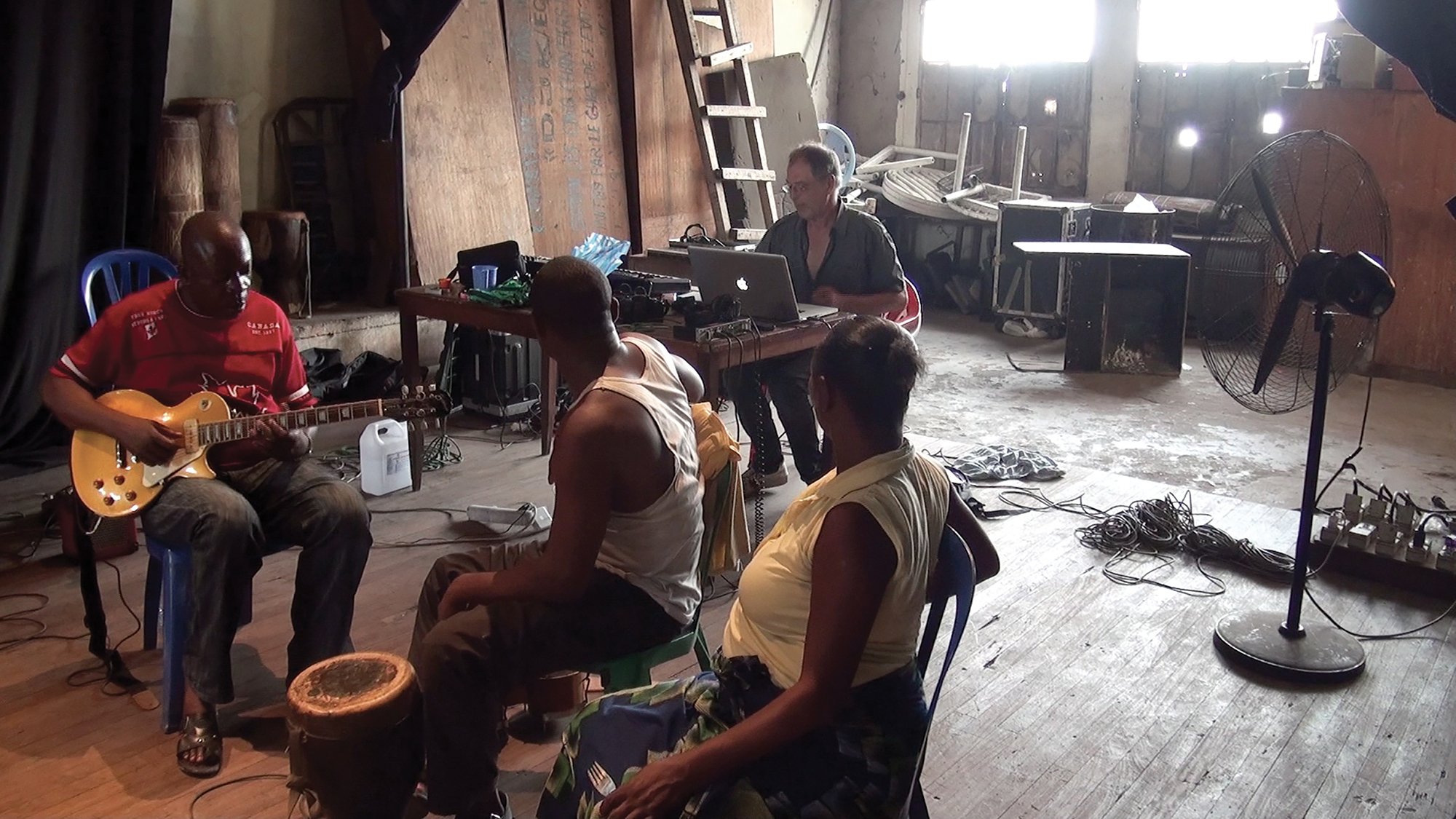Congotronics International
Congotronics International. Photo By Piotr Lewandowski
It all started when the music of Konono No.1 and Kasai Allstars was first released in the US and Europe, in the later part of the ‘00s. With its blend of ritual music, traditional percussion, thumb pianos, electric guitars, and makeshift instruments made from junkyard scrap, their out-of-this-world sound - now also known as Congotronics, a word coined to title the series in which their albums appeared on Crammed Discs - deeply struck the imagination of musi cians and fans worldwide. Leading rock media enthused about this newly rediscovered brand of ‘‘primal rock’’, while an impressive string of avant-rock, electronic & hip hop artists (from Dirty Projectors, Andrew Bird, Animal Collective and Deerhoof to Beck, Björk, Wilco, Radiohead, Saul Williams, Questlove and many more) repeatedly quoted the Congotronics bands as major sources of inspiration.
Photo: Piotr Lewandowski
After curating an epic tribute album by 26 rock and electronic artists (Tradi-Mods vs Rockers: Alternative Takes on Congotronics), Crammed Discs pushed the idea further, and initiated a real-life encounter, resulting in a supergroup consisting of ten members of Konono No.1 and Kasai Allstars, Juana Molina, all four members of Deerhoof, both members of Wildbirds & Peacedrums, Matt Mehlan from Skeletons, and Vincent Kenis (in his capacity of co-founder of Kasai Allstars and curator & producer of the Congotronics record series).
Photo: Vincent Kenis
For several months, a fascinating remote writing process took place: demos started flying back & forth over the net. Someone would start a song and send it on to the others, the same track sometimes travelling three times around the globe (Vincent Kenis was in Kinshasa with the Congolese participants, while Juana Molina, Deerhoof, Wildbirds & Peacedrums and Matt/Skeletons worked from their respective studios in Buenos Aires, New Mexico/New York, Stockholm and Brooklyn).
Photo: Mattia Zoppellaro
Everyone eventually flew in to Brussels to complete the writing, and rehearse for the tour which had been set up. During these intense sessions, the specificities of the supergroup emerged: there was to be no leader, everything was conceived collectively; many languages were spoken in the band (Lingala, Tshiluba, English, French, Swedish), but few people spoke more than one or two; The musical languages were another story: simultaneously more and less mutually intelligible… More, because verbal communication isn’t always necessary in those matters, and less, because massive gaps sometimes needed to be bridged. This is well described in the notes written for the album booklet by the participants, who also reveal the origin of the album’s title (Where’s the One? refers to the initial difficulties in agreeing on how to understand each other’s rhythms: “where does the first beat actually fall?”).
Photo: Vander Sanden
The concerts were fiery and wild. After the tour (16 dates which took the band to some of the best festivals and ve nues across Europe and Japan, in the summer of 2011), the recording process continued in remote mode, on and off. The resulting album blends concert recordings, processed and mixed by Deerhoof’s Greg Saunier, who considered them as raw material to which he applied studio treatments, and tracks derived from studio sessions conducted before & during the tour as well as in the following years. The record was completed in 2021 by Deerhoof’s John Dieterich & Greg Saunier and Crammed Discs’ Marc Hollander. The album’s mixing by Saunier serves to elevate its live recordings into a seamless whole alongside the studio tracks.
Congotronics International is ultimately an ephemeral supergroup, however the strong bonds and mutual respect that were born between all musicians have led to some of its members to collaborate with each other in the time since (in 2017, Molina was featured on Deerhoof’s Mountain Moves LP, while Dieterich worked on her Halo LP; more recently, Deerhoof remixed a track on Kasai Allstars’ 2021 release The Black Ants Remixes). Other collab projects are in the works.
A feature-length documentary of Where’s The One?, which offers an inside look at the initial encounters and concerts filmed and directed by Pierre Laffargue, is also set for release later this year.







